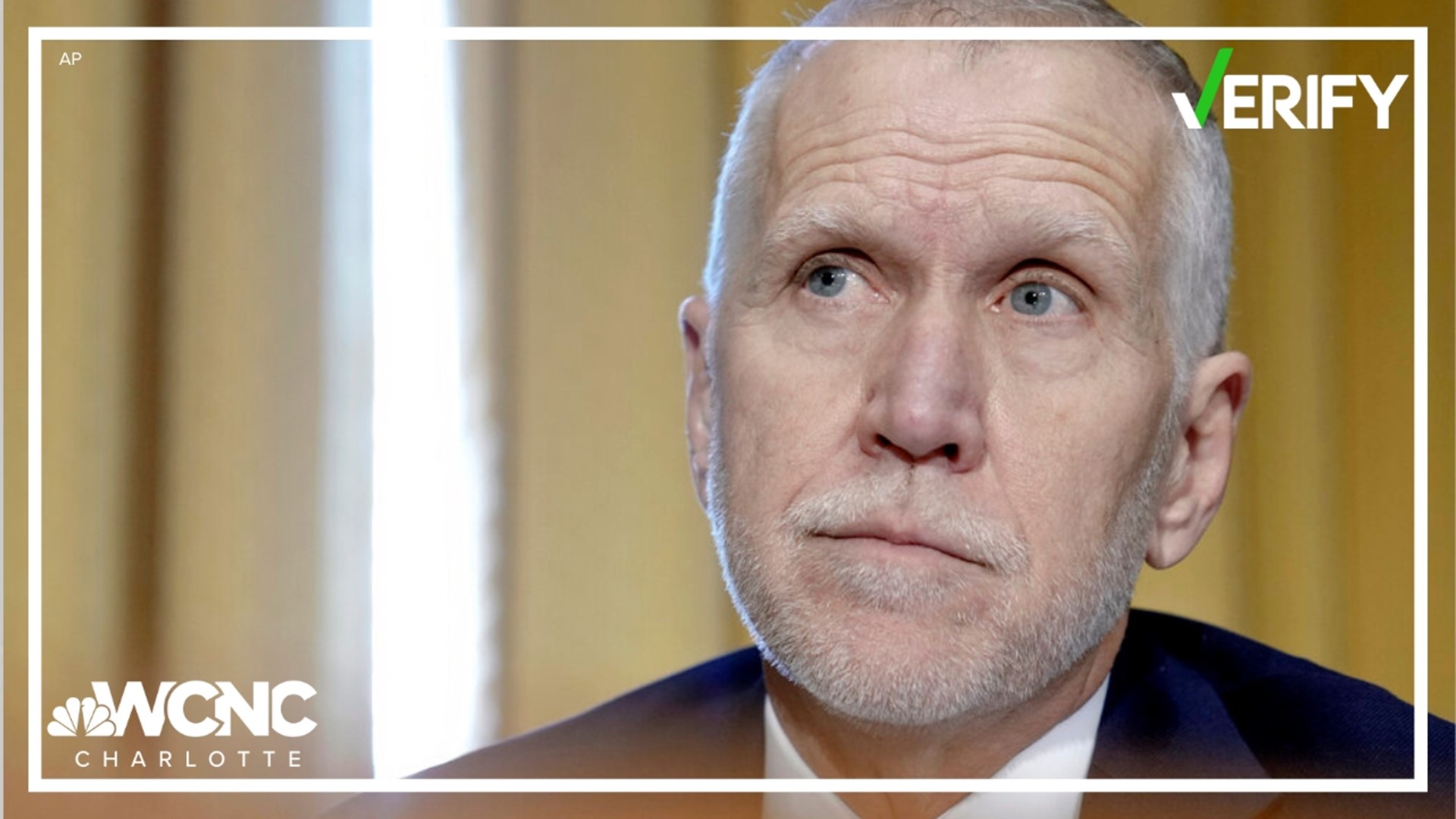CHARLOTTE, N.C. — Senator Thom Tillis said he received a threatening voicemail from a TikTok user who was upset over the potential ban of the social media app.
Thom Tillis shared the voicemail on Wednesday.
Part of the voicemail said if TikTok is banned the user will and this is a direct quote," shoot you and find you and cut you into pieces.”
But what happens if you’re caught calling in a verbal threat to someone else?
OUR SOURCES
WHAT WE FOUND
Under state and federal law, communicating a threat to a public official is a Class 1 felony.
Attorney Gary Mauney said it doesn’t matter if the threat was in writing or verbal, as in a voicemail.
"So the consequences of uttering that type of threat communicating, those threats are quite significant," Mauney said. "And the typical jail time for that type of offense is somewhere between five and 10 years depending on the record."
But what if a threat is made against a public citizen instead of an elected official? Mauney said it’s still illegal, but the punishment is not as substantial.
RELATED: Thom Tillis shares threatening message from TikTok user against possible ban: 'Cut you into pieces'
"People don't realize that when you hear assault and battery, the assault part of that is just communicating information that puts the listener in imminent fear of bodily harm, that's a crime," he said.
And if you think your right to “free speech” allows you to say whatever you want? Mauney said, think again.
"The First Amendment has limits, and this is one of them," Mauney said. "You cannot threaten someone with serious bodily harm without facing consequences in our criminal justice system for doing that. So the next time you think about doing something like that, you need to think twice because it is a crime."
WCNC Charlotte's Verify series is all about trying to make a difference in the Carolinas by making sure the community has the correct information. WCNC Charlotte outlines concisely what we know and what we don't know. Sometimes the answer can be surprising. Watch previous stories where we verify social media claims in the YouTube playlist below and subscribe to get updated when new videos are uploaded.
VERIFY is dedicated to helping the public distinguish between true and false information. The VERIFY team, with help from questions submitted by the audience, tracks the spread of stories or claims that need clarification or correction. Have something you want VERIFIED? Text us at 704-329-3600 or visit VERIFY.

